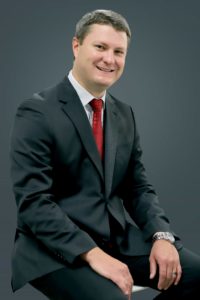
Jan-Carel Botha, Director of Purpose Wealth
One of Warren Buffet’s famous quotes states that “only when the tide goes out, do you discover who’s been swimming naked”.
This is the exact opposite than “a rising tide lifts all boats” from JF Kennedy. For the past decade, this was the case for global markets. Everyone had a good time. South African investors, however, with limited offshore exposure, have had little of this. Then came 2020 and the tide went out for all of us on this planet. Without stating that which everyone knows, let’s contemplate the impact of 2020 on the financial planning industry.
As a passionate financial planner with a keen interest in behavioural finance, I was tempted to highlight the many cases of classic bias errors and client emotions, destroying wealth midst the crises in 2020. Jumping to cash in late March 2020, buying USD in April, being overly conservative in May, Buying Sasol (and spending a fortune on alcohol) in June, prematurely liquidating a business in July, jumping all back into the market in August, buying gold in September, timing the US Election in October… We all have these stories and let’s be honest, we all made some of these mistakes, and on some of these decisions, the jury is still out. This is not over yet.
I have decided, however, to turn and have a good look in the mirror. Did we do enough in the good years to prepare clients for this? What should we have done differently? How did our practice look when the tide went out in March 2020? Did we swim naked? What if the stimulus packages didn’t get markets back to the levels they are on now? All tough questions that we all need to answer to ourselves.
Lessons learnt
- Diversification is your friend
Maybe an obvious and boring point, yet I see most new clients being invested in a RA within a balanced fund and that’s where the diversification stopped. Having a balance between pension vs discretionary, local vs offshore, stable vs growth, trust vs personal name. This is what true diversification means. And especially on the local vs offshore investments debate, the earth doesn’t pivot around SA. Stop getting emotional, understand that SA is 0.5% of world GDP, and do what’s right. We should ensure all clients are diversified for the most obvious risks. This leads me on to the second lesson.
- You can make a lot of money many times for clients, but you can lose everything only once
If we think our role and value-add is to make clients rich, we’ve lost the plot. Rule number one is “don’t lose the money”, rule number two, “always remember rule number one”. It’s all about risk-adjusted returns. Markets (and the world) will surprise. An all or nothing approach will blow up at some point. Ask the bullish Steinhoff shareholders or the bearish offshore investors. All in good measure is the answer.
- Don’t have too many clients
You will crash and burn. Never have our team worked harder than from April to August. We are a team of five working on 150 clients. I have no idea what we would have done if we had 500 or 600 clients as many teams of our size in the industry have.
- All clients should have a definitive investment strategy
Too many times have I seen that the term “financial plan” being used loosely. The planner drafts a financial plan that’s mostly based on software programming doing a basic gap analysis of death and retirement, coupled with a cashflow, getting cashflows to match a comfortable retirement, and lastly plugging the gaps at death. This quite frankly is a financial analysis, and maybe halve a plan, but not a strategy. I’ve come to learn that a strategy has solutions that match lifechanging scenarios. Never will I plan in straight lines again. Having ample cash for short term changes and income needs (separate from the balanced fund in which we so often like to invest for clients), and ensuring the balance is well-positioned for long-term growth.
These are the lessons I’ve leant and hope to improve on for a “second wave” when the tide goes out again – whatever the next crisis might be.


